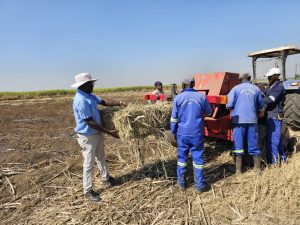Zimbabwe’s government is struggling to reduce open defecation, a practice that poses serious health and environmental risks, despite its efforts to improve sanitation facilities.
Minister of Information, Publicity, and Broadcasting Services Jenfan Muswere said Tuesday that open defecation has fallen slightly from 30% in 2020 to 28.6% in 2023, but it remains a challenge. He said access to improved sanitation has also dropped from 65% to 61.1% over the same period.
“Cabinet notes that government is putting in place measures to address the low basic hygiene (that is handwashing with soap and safe water) in both rural and urban areas,” he told journalists at a Cabinet briefing.
Muswere was speaking on the defecation situation in light of an update on the country’s water, sanitation, and hygiene situation, which was presented by the Minister of Lands, Agriculture, Fisheries, Water and Rural Development, Anxious Jongwe Masuka, as the chairman of the National Action Committee on Water, Sanitation and Hygiene (WASH).
“The public is informed that the WASH National Action Committee superintends over the subcommittees of Rural WASH, Urban WASH and Water Resources Management. In order to engender a whole-of-society approach to sector programming, a WASH Sector Working Group brings together government, donors, development partners, civil society organizations, the private sector and the media,” Muswere said.
Open defecation refers to the practice of people relieving themselves in the open, such as fields, forests, or bodies of water, instead of using toilets. It can contaminate water sources, spread diseases, and contribute to poor hygiene conditions.
Muswere said the government is implementing measures to tackle the challenges faced by the water, sanitation, and hygiene sector, including the aging and dilapidated infrastructure and insufficient funding. These efforts aim to improve the overall water and sanitation services in the country.
The latest report by the Zimbabwe Vulnerability Assessment Committee, a consortium of government and humanitarian agencies, indicates some positive developments in access to drinking water. The report reveals that access to improved drinking water has increased from 72% in 2020 to 78.4% in 2023. Similarly, access to basic water services has risen from 57% to 60.3% over the same period. The report also highlights that 76% of boreholes and deep wells in rural areas are currently functional.
Efforts to improve access to improved sanitation facilities, promote handwashing with soap, and secure adequate financing for the water, sanitation, and hygiene sector are paramount in combating open defecation effectively.
Source: Kukurigo






